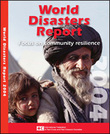Sort by: Author | Title | Publication Year
BOOKS
Nepad: Toward Africa's Development or Another False Start?Ian Taylor Enthusiastically embraced by African presidents, G-7 leaders, and the UN General Assembly alike, the New Partnership for Africa's Development has been advanced as the vehicle that will vitalize the continent's economies. Ian Taylor critically explores just what Nepad is, and what potential it has—or lacks—for promoting African development. More > |  |
The Euro: A Concise Introduction to European Monetary IntegrationMadeleine O. Hosli Tackling the alphabet soup of European Union treaties, structures, and policies, this straightforward introduction demystifies the European Economic and Monetary Union (EMU).
Hosli first traces the history of monetary integration in Western Europe and discusses the political and economic factors that led ultimately to the establishment of EMU and the euro. Then—in language More > |  |
Ritual and Symbol in PeacebuildingLisa Schirch Conflict is dramatic. In theater, literature, story telling, and news reporting, it is a powerful mechanism that draws attention, heightens the senses and evokes emotion. Schirch argues that peacebuilding has the potential to do just the same.
Examples of peacebuilding often center on the serious, rational negotiations and formal problem-solving efforts in conflict situations. Schirch argues, More > |  |
Globalization and Social Exclusion: A Transformationalist PerspectiveRonaldo Munck When global economies integrate, what disintegrates as a result? The answer, Ronaldo Munck contends, is social equality.
To illustrate how globalization deepens existing inequities, Munck focuses on disparities in living conditions; the feminization of poverty; the global sex trade; the effects of racism, migration, and multiculturalism; and the formation and political manifestations of social More > |  |
World Disasters Report 2004: Focus on Community ResilienceInternational Federation of Red Cross and Red Crescent Societies In the hours and days after an earthquake or flood, most lives are saved by the courage and resourcefulness of friends and neighbors. During slow-onset crises such as drought, many indigenous societies have developed extraordinary capacities to cope and bounce back. How can humanitarian organizations, which seek to bring aid to disaster-struck communities, strengthen rather than undermine this More > |  |
Creating a Better World: Interpreting Global Civil SocietyRupert Taylor, editor The term "global civil society" has become a catchphrase of our times. But efforts to define and interpret what global civil society actually is have led to ambiguity and dispute. The authors of Creating a Better World present illustrative cases of groups within civil society—from the Seattle and Genoa protesters to transnational grassroots movements such as Slum/Shack Dwellers More > |  |
The Charity of Nations: Humanitarian Action in a Calculating WorldIan Smillie and Larry Minear Ian Smillie and Larry Minear probe the reasons behind governmental and nongovernmental responses to urgent human need. They explain why some crises got the lion's share of attention and resources, while others are essentially forgotten.
Vibrantly contrasting cases of Afghanistan, East Timor, and Sierra Leone, among others, illustrate how foreign policy and domestic politics have shaped what More > |  |
Global Civil Society, Volume Two: Dimensions of the Nonprofit SectorLester M. Salamon and S. Wojciech Sokolowski, editors In Volume Two of Global Civil Society, the Johns Hopkins Comparative Nonprofit Sector Project continues the comprehensive overview of the scope, size, composition, and financing of the nonprofit, or civil society, sector in the developing as well as the developed world. Covering thirty-six countries—fourteen in depth—with a particular focus on Africa, Asia, and the Middle East, More > |  |
The Lure of the Linguistic: Speculations On The Origin Of Language In German RomanticismShelley Frisch | |
Making Sense of Governance: Empirical Evidence from Sixteen Developing CountriesGoran Hyden, Julius Court, and Kenneth Mease Although governance has been the focus of a considerable body of literature on democratic transitions and consolidation, data to support the claim that the concept is a useful one has been lacking. Now, however, Making Sense of Governance clearly shows the utility of research on governance, presenting empirical evidence from sixteen developing countries.
The authors focus on six arenas: More > |  |



